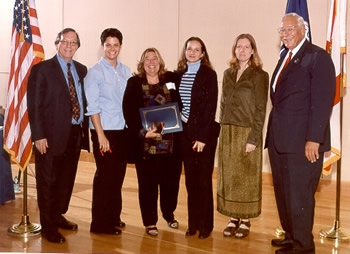The Battered Woman Syndrome Questionnaire Validation Study
Grant Winners
- Lenore E. Walker, Ph.D. – Center for Psychological Studies
- Kimberly Shaw, Ph.D. – Mailman Segal Center for Human Development
- Kristin David, Julie Johnson, Amber Lyda, and Katherine Richmond – Graduate Student Research Assistants
Deans
- Ronald Levant – Center for Psychological Studies
- Wendy Masi – Mailman Segal Center for Human Development
Abstract

The aim of this study is to empirically validate an assessment process, the Battered Woman Syndrome Questionnaire (BWSQ) and demonstrate its ability to collect reliable and valid data concerning:
- short and long term psychological impact of domestic violence for women across cultures.
- cross-cultural factors that may predispose a woman to victimization, keep her in a violent relationship, and allow her to find safety.
A theoretically and clinically informed Revised BWSQ will be administered to a diverse multi-cultural U.S. population, a Russian population, and a Spanish population. Embedded in and included with the BWSQ administration are measures to assess the psychological impact from interpersonal trauma, the role of gender ideology, the effects of betrayal and single or multiple traumas, and the role of attachment theory all of which address the objectives listed above. Using descriptive statistics and principal component analysis, we will determine:
- if the theoretical constructs in the BWSQ "hang together" to demonstrate the constellation of psychological effects called The Battered Woman Syndrome (BWS).
- if multiple types of trauma (as measured by the BBTS) result in a more severe or long term symptom constellation for the battered woman than the trauma of domestic violence alone.
- if there exists a similar theme across cultures of predisposing factors, factors that keep a woman in a battering relationship, and factors that empower her to find safety.
Few empirically validated assessment or treatment protocols have been studied or implemented to provide psychological help to victims of domestic violence. The results of this project will inform appropriate treatment protocols and theoretical conceptualizations of battered women. Through the dissemination of this research, we hope to integrate these important findings into the current intervention programs in mental health centers, battered women shelters, forensic services and other community agencies.